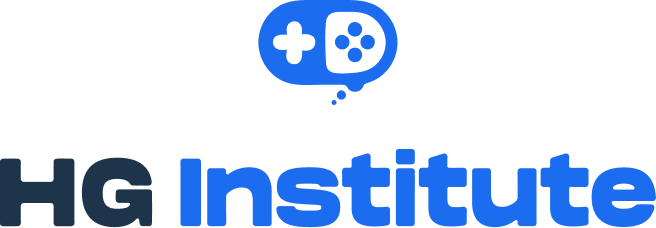Frequently asked questions
What is a Health and Wellness Coach?
In alignment with the standards of the National Board for Health & Wellness Coaching (NBHWC), Health Coaches:
- Partner with clients to set goals and create personalized action plans
- Use evidence-based techniques to support behavior change
- Empower clients through a non-directive, autonomy-respecting approach
- Work within their scope, complementing—not replacing—healthcare providers
- Adhere to professional ethics, competencies, and boundaries
At HG Institute, we recognize that our digital lives are a crucial but often overlooked aspect of modern health. Alongside nutrition, movement, stress, and sleep, our coaches are trained to support clients in navigating screen time, gaming habits, online burnout, and tech-life balance bridging the gap between traditional wellness and the digital age.
What Do Coaches Do?
Health and Wellness Coaches:
-
Guide clients toward sustainable lifestyle changes
Coaches support behavior change through structured goal-setting and reflective conversations, helping clients take consistent, meaningful steps toward well-being. -
Help design healthier routines and habits
From sleep and nutrition to screen time and stress, coaches assist clients in shaping daily habits that align with their values and goals. -
Provide positive reinforcement and accountability
Coaches celebrate progress, reframe setbacks, and help clients stay motivated—even when life gets complicated. -
Teach self-advocacy in healthcare and wellness settings
Clients learn how to communicate effectively with providers, ask questions, and take an active role in their own care. -
Support mindset shifts and resource-building
Coaches help clients reframe limiting beliefs, identify strengths, and build support systems that promote long-term change.
Coaches do not diagnose, treat medical or mental health conditions, prescribe, or give direct advice. Instead, they empower clients to discover their own path forward—within a clear, ethical scope of practice.
How is Coaching different from…
Coaching shares common ground with many helping professions—like therapy, nutrition, fitness, and education. While all aim to support personal growth and wellness, they differ in scope, methods, and professional boundaries. Coaching has a distinct focus: it centers on behavior change, skill-building, and goal achievement, particularly in areas like motivation, lifestyle habits, wellness, and personal development.
Coaches do not diagnose or treat mental or physical health conditions. Instead, they provide structured support, accountability, and forward momentum to help clients take meaningful action in their lives.
Therapy vs. Coaching
- Therapy: Helps individuals process emotions, navigate mental health challenges, and build insight, often integrating past, present and future experiences and goals.
- Coaching: Focuses on structured support for goal-setting, skill-building, and behavior change. Coaches do not diagnose or treat mental health conditions, but help clients gain clarity, stay accountable, and take action.
Therapists help you heal, adapt, and grow. Coaches help you build momentum, stay consistent, and move forward with intention.
Dietitian vs. Coaching
- Dietitian: Provides medical nutrition therapy and personalized plans for conditions like diabetes, heart disease, eating disorders, and GI issues. Also supports broader goals like improving energy, managing weight, and building sustainable habits.
- Coaching: Helps clients implement healthy eating habits, stay consistent, and set realistic goals—often alongside or after medical guidance.
Think of coaches as the "practice partner" for behavior change—not the medical expert.
Physical Therapy vs. Coaching
- Physical Therapy: Diagnoses and treats physical injuries, and prescribes rehabilitation exercises.
- Coaching: Supports clients in building wellness routines and staying motivated in long-term recovery or fitness—within scope and in collaboration with providers when needed.
PT restores function. Coaching helps you create momentum and stick with healthy movement routines.
Mentorship vs. Coaching
- Mentorship: Involves sharing personal experience, advice, and direct guidance based on the mentor's expertise.
- Coaching: Uses open-ended questions, frameworks, and accountability to help clients discover their own solutions.
Mentors tell you what worked for them. Coaches help you find what works for you.
Why Are Coaches Important to the Future of Wellness and Healthcare?
Today’s healthcare system is mostly reactive—it often steps in only after problems become urgent. While doctors and clinicians are essential for treating illness, there’s usually little support for the day-to-day changes people need to stay well or keep making progress.
That’s where health and wellness coaches come in.
Coaches fill this critical gap by offering proactive, personalized support. They help clients build sustainable habits, develop resilience, and live healthier lives—before challenges turn into clinical concerns.
At HG Institute, we teach a whole-person approach built for the digital age. Wellness isn’t just about diet and exercise—it includes relationships, career, screen habits, stress management, purpose, and emotional well-being.
Our graduates help clients navigate a world where mental, physical, and digital lives are deeply connected—supporting real, lasting change.
What Does It Mean to be an NBHWC-Approved Program, Why Does It Matter?
What are the steps to becoming a Board Certified Health and Wellness Coach?
- Hold an associate’s degree or higher (or equivalent)
or complete at least 4,000 hours of professional work experience - Complete an NBHWC-approved training program (like HGI's Coachiing Elements Quest)
- Conduct 50 coaching sessions after graduating from an approved program
- Pass the National Board Certification Exam
For more details, see NBHWC’s Exam Requirements.
What Makes HG Institute and the Coaching Elements Quest Different?
We don’t just teach coaching. We forge future-ready coaches equipped for today’s real-world challenges:
- Integrated Mental Health and Digital Wellness Training: We teach not only traditional coaching, but how digital life impacts mental, emotional, and social health.
- Real Practice, Real Feedback: Multiple supervised coaching sessions and personalized feedback ensure you’re not just learning—you’re living the skills.
- Mentorship by Experts: Learn from board-certified coaches, licensed clinicians, and leaders in video game addiction and digital mental health.
- Community and Ongoing Growth: After graduation, you’ll join a professional network for continuing education, collaboration, and career support.
What are the Requirements to Enroll?
Our Program Requirements:
You must attest that you meet one of the following:
- At least 4,000 hours of work experience (in any field — not limited to psychology or healthcare)
- OR an Associate’s Degree or at least 60 post-secondary credit hours (in any field)
NBHWC Requirements:
- NBHWC may require formal proof (such as translated transcripts or verified work history) before you sit for their certification exam.
- Many international examinees find the work experience option to be the simplest path.
Need More Info?
- NBHWC hosts monthly live webinars to answer questions about exam eligibility.
- You can also contact NBHWC directly for details about documentation and audits.
What is the time commitment for the Coaching Elements Quest program?
The Coaching Elements Quest is a 20-week immersive training program delivered fully online.
- Total time commitment: 5–7 hours per week
- Live sessions: Approximately 3–5 hours per week
- Format: 75% live instruction, 25% self-paced learning
- Delivery: 100% virtual (no in-person requirements)
What is the attendance policy?
Showing up — fully and consistently — is one of the most important ways you’ll grow as a coach. Our live sessions are where practice, feedback, and connection come together to help you build real-world coaching skills. Attendance isn’t just a box to check — it’s how you get the full value of the program and become a coach clients can trust.
Why Attendance Matters
Coaching is more than a concept, it’s a practice. And practice requires presence. Each live session is a chance to grow your skills, receive real-time feedback, and engage with your community of future coaches. Missing a session means missing an opportunity to deepen your understanding and confidence. Consistent attendance isn’t just a requirement — it’s how you become the kind of coach clients trust and grow with.
Attendance Requirements
To successfully complete the Coaching Elements Quest and receive your Certificate of Attendance, you’ll need to:
- Attend all scheduled class sessions in full.
- Complete all lesson feedback surveys (your reflections help us make the program even stronger).
- Score 75% or higher on all required quizzes.
- Complete all required assignments, including contributing to discussion/forum posts and completing assigned readings.
- Complete all mandatory asynchronous material/courses.
Life Happens: What to Do if You Miss a Session
We get it — sometimes life throws a curveball. If something major comes up (like a medical emergency or serious personal situation), we’re committed to working with you to find a way forward.
Makeup sessions are available for documented, extenuating circumstances. If you know you’ll miss a session, let us know as soon as you can so we can talk through your options.
Depending on the situation, a makeup might involve watching a recording, attending a different session, or scheduling an individual meeting.
Each student is allowed up to three makeup sessions at no additional cost. After that, additional makeups may incur a fee, as outlined in the financial agreement. This helps us ensure we can continue offering high-quality, flexible support to everyone in the program.
While we can’t guarantee makeup options for every situation, we’ll do our best to support you.
What Happens if You Miss Without a Makeup Plan
- Missing a session without arranging an approved makeup means you won’t meet the completion requirements for Coaching Elements Quest.
- In some cases, you might need to re-enroll in a future cohort (space permitting, and with additional fees) if you want to finish the program.
Tracking Attendance
- We’ll be keeping track of attendance throughout the course.
- It’s your responsibility to make sure your tech setup is ready (reliable internet, working camera/mic, etc.) so you can participate fully.
Can I take this course if I live outside the United States?
The NBHWC exam must be taken in person at an approved Prometric testing center. For international students, Prometric offers test centers in several countries. You can view the full list of international locations here.

